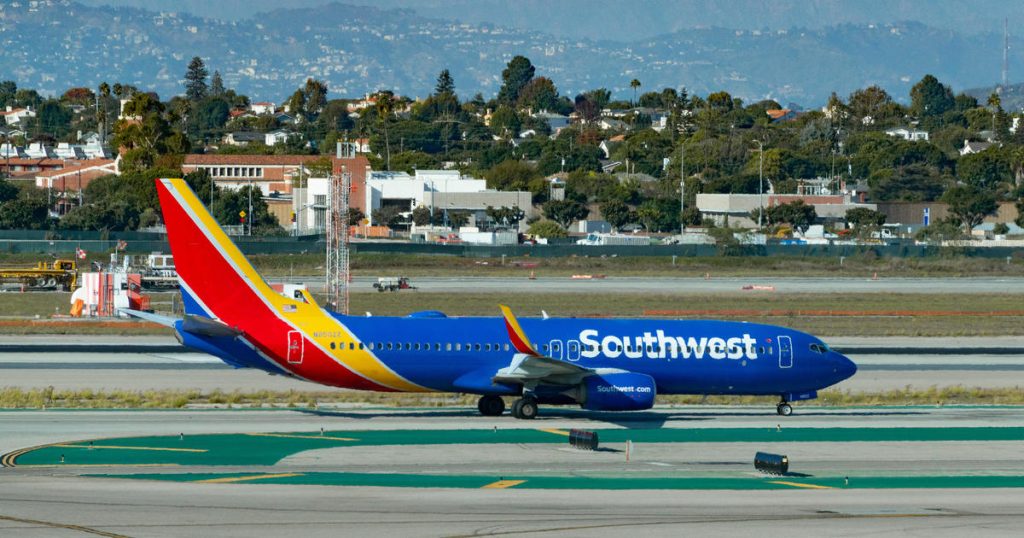An engine covering fell off a Boeing plane and hit the plane’s wing flap as a Houston-bound Southwest Airlines flight took off from Denver International Airport. The incident led to the plane safely returning to the airport, where it was towed to the gate. Air traffic control recordings captured the crew declaring an emergency due to the engine cowling hanging off. Passengers on the flight will reach Houston through another aircraft, arriving three hours later than scheduled. The Southwest maintenance team is inspecting the plane, and the FAA will conduct an investigation. The aircraft in question was delivered in 2015, and the engine was made by CFM.
Boeing has faced scrutiny in recent months after various incidents involving their planes. In January, a door panel blew off a Boeing 737 Max 9 jet during an Alaska Airlines flight, leading to increased inspections by the Federal Aviation Administration. A subsequent report revealed a lack of safety awareness at Boeing, with employees having difficulty understanding safety-related metrics. In February, passengers witnessed a wing coming apart on a Boeing 757-200, and in March, a United Airlines Boeing 777 lost a tire shortly after takeoff. Another United Airlines flight from San Francisco to Paris was diverted to Denver due to an engine issue. These incidents have raised concerns about the safety of Boeing aircraft.
Southwest Airlines operates a fleet of over 200 Boeing 737-800 planes, with an average fleet age of approximately 12 years. The airline has had to deal with maintenance issues and incidents involving its aircraft. Passengers on the flight in question will experience a delay in reaching their destination due to the incident. The airline is committed to ensuring the safety of its passengers and has dedicated maintenance teams to inspect its planes regularly. The FAA will also investigate the incident to determine the cause of the engine covering coming off during takeoff.
The incident highlights the importance of ensuring the safety and reliability of aircraft for passenger travel. Airline companies must adhere to strict maintenance and inspection protocols to prevent such incidents from occurring. The collaboration between airlines, aircraft manufacturers, and regulatory authorities is crucial in maintaining the safety of air travel. Passengers and crew members must remain vigilant and report any issues or concerns during flights to ensure a safe and secure travel experience. The incident serves as a reminder of the potential risks involved in air travel and the need for continuous monitoring and improvement in safety standards.


